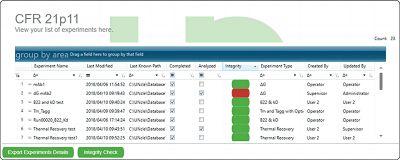One-stop stability
Cracking stability using a pile of one-trick, sample-hungry tools is a ton of work. Uncle combines 3 different measurement modes — fluorescence, Static Light Scattering (SLS) and Dynamic Light Scattering (DLS). So you can crank out all your data in just a few hours, and use way less precious sample. All the info you’ll get makes picking the best formulation, protein, or viral vector a piece of cake.
● Tm & T agg
● Isothermal stability
● Viral capsid stability
● Tm with SYPRO (DSF)
● Sizing & polydispersity
● Sizing with thermal ramp
● Thermal recovery
● Viscosity
● kD
● B22
● G22
● ΔG
Uncover way more in one shot
Trying new formulations or constructs? Get answers from protein stability measurements on up to 48 samples in under 2 hours. Capture Tm and Tagg at the same time and know when unfolding leads to aggregation. Add a DLS read before the temp ramp to know if you’ve got aggregate trouble right out of the gate.
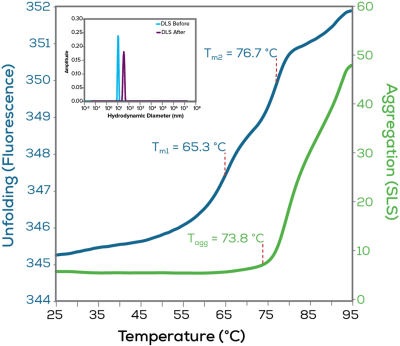
Let ‘em simmer
Get a jump on testing long-term storage by tackling isothermal protein stability measurements early on – way before it becomes a problem down the line. Uncle is decked out with a set of tailormade apps that focus in on proteins, reporter dyes or vector payloads and how they handle stewing at static temps. Keep Uncle freed up for other stuff with its out-of-the-box isothermal applications — load your samples in Unis, stow them in an incubator, and then pop them back into Uncle to get eyes on who’s acting up, whenever you want.
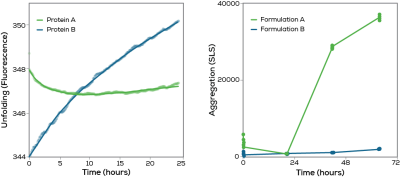
AAV capsid stability
Uncle teams up with SYBR Gold to get a read on when your DNA starts to leak — way before the AAV capsid pops. Quantify initial free DNA and the amount that’s on the loose after a thermal ramp. Know when aggregation gets out of hand and tackle particle titer with SLS and DLS.
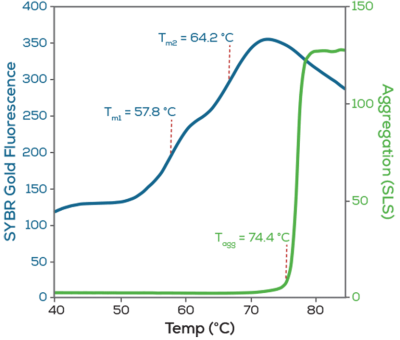
Spot genome jailbreaks
Make sure DNA or RNA isn’t escaping from your vectors on the sly, over time. Uncle’s full spectrum fluorescence and SYBR Gold isothermal app let you take an early, low volume look at accelerated, isothermal storage testing.
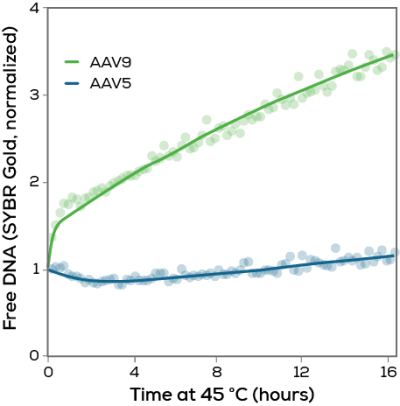
B22 & kD
Get B22 and kD at the same time in the same Uni. Or, switch over to G22 if you’re working at super high concentrations. Learn on the spot if your protein-formulation combo is good to go or risky for aggregation with software that makes things easy to figure out. For super high protein concentrations, G22 is ready to go.
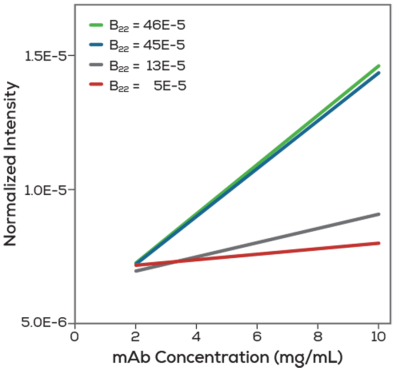
Unleash the Uni
Get more data with way less sample. The Uni only needs 9 μL, and you pick how you use it. Run 1 sample in the morning, 48 in the afternoon. Do a DLS read if that’s all you need. Or, check DLS, then start a 3-day experiment to monitor real-time stability. Your samples are sealed airtight, so runs can be short or long — your call.
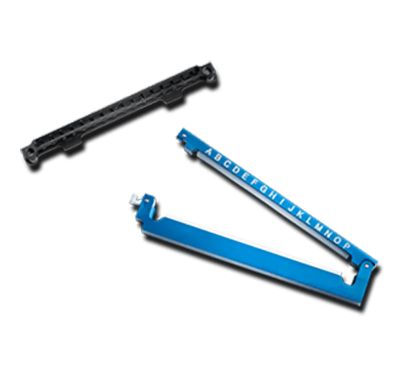
Full-spectrum
Biologics and gene vectors are special. With Uncle, you get the whole fluorescence spectrum, so you don’t need to know ahead of time how your sample behaves. If you want to try out some new tricks with dyes, Uncle can pick up on those too. Uncle's SLS catches aggregation with two wavelengths — making it super sensitive and clutch for uncovering aggregates over a wide range of sizes.
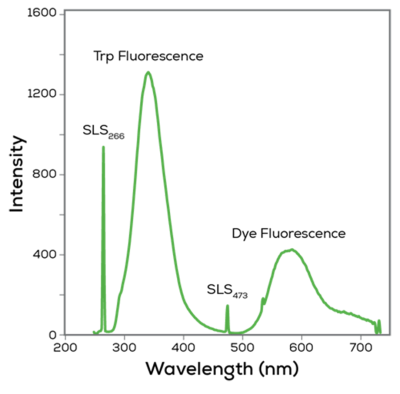
21CFRp11
If you’re working in regulated environments, you know that controlling access to data and keeping its integrity are a must-have. Uncle has 21CFRp11 compliant software tools that can be turned on without a hitch.
